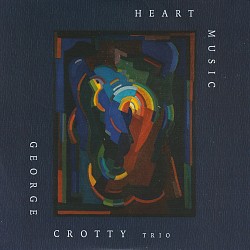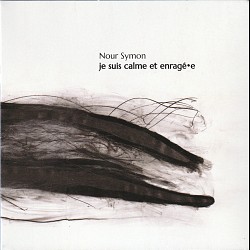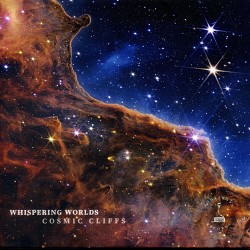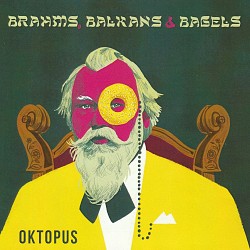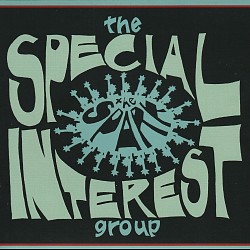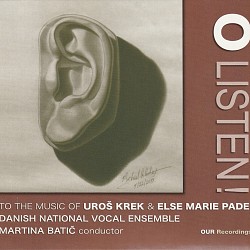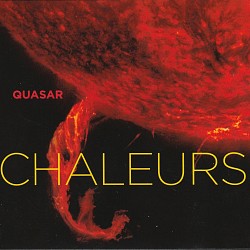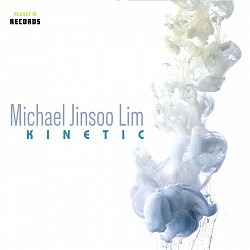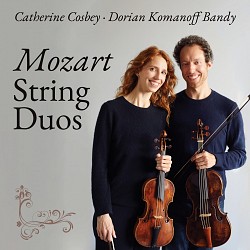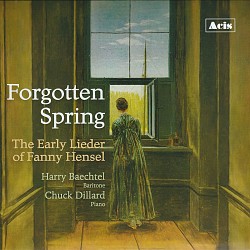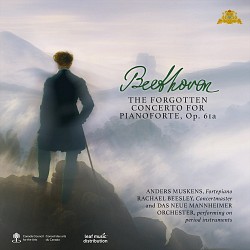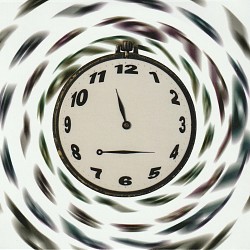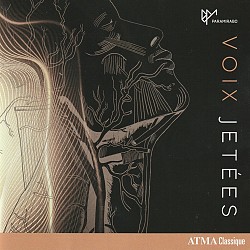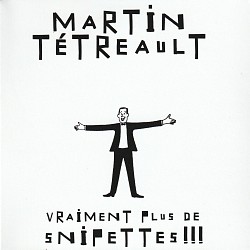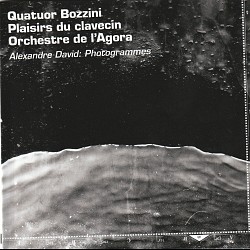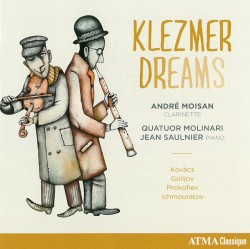 Klezmer Dreams
Klezmer Dreams
André Moisan; Quatuor Molinari; Jean Saulnier
ATMA ACD2 2738 (atmaclassique.com)
Review
Originating hundreds of year ago, the roots of klezmer, the instrumental party music of Ashkenazi Jewish communities, were enriched by contact with the music of the people of Central and Eastern Europe and beginning in the early 20th century, with jazz. The performance of klezmer music generally declined as the last century progressed. Beginning in the 1970s a grassroots revival spread out from its North American base, today’s klezmer scene (re)embraces the globe. Arab, Indian, Celtic and Korean musicians are getting in on the act. Earlier this year Amalia Rubin’s performance of a 1927 Yiddish song on Mongolian TV’s version of American Idol, accompanied by six Mongolian instrumentalists, garnered thousands of likes on social media.
Despite its transnational appeal, there are, however, essential features which distinguish klezmer music. Glissandi and syncopation that evoke laughter or sobs, ornamentation of the melody reflecting the inflections of the human voice, and melodies moving within the tonal modes of Central/Eastern Europe are just three. Emotional mood is also often sharply delineated, ranging from deep melancholy to dancing exuberance.
Classical concert composers have been attracted by klezmer’s vibrancy too. Five are represented in the very satisfying album Klezmer Dreams, including two Canadians, Srul Irving Glick (1934-2002) and Airat Ichmouratov (b.1973). Sergei Prokofiev’s Overture on Hebrew Themes (1919) for clarinet, piano and string quartet is the oldest composition on this disc. Prokofiev retains the folkloric flavour of the Jewish melodies he borrowed while maintaining his idiosyncratic composer voice, this time rendered in a light tone. At over 35 minutes The Dreams and Prayers of Isaac the Blind (1994) for Klezmer clarinet and string quartet, by Argentinian-American composer Osvaldo Golijov (b.1960), is by far the longest and stylistically most adventurous score here. It features the brilliant and stylistically spot-on Klezmorim clarinet solos of Montrealer André Moisan. Starting and ending with a prayer, “Thou pass and record, count and visit, every living soul, appointing the measure of every creature’s life and decreeing its destiny,” this substantial work definitively demonstrates the reach of klezmer – once considered folk party music – deep into the concert hall.

